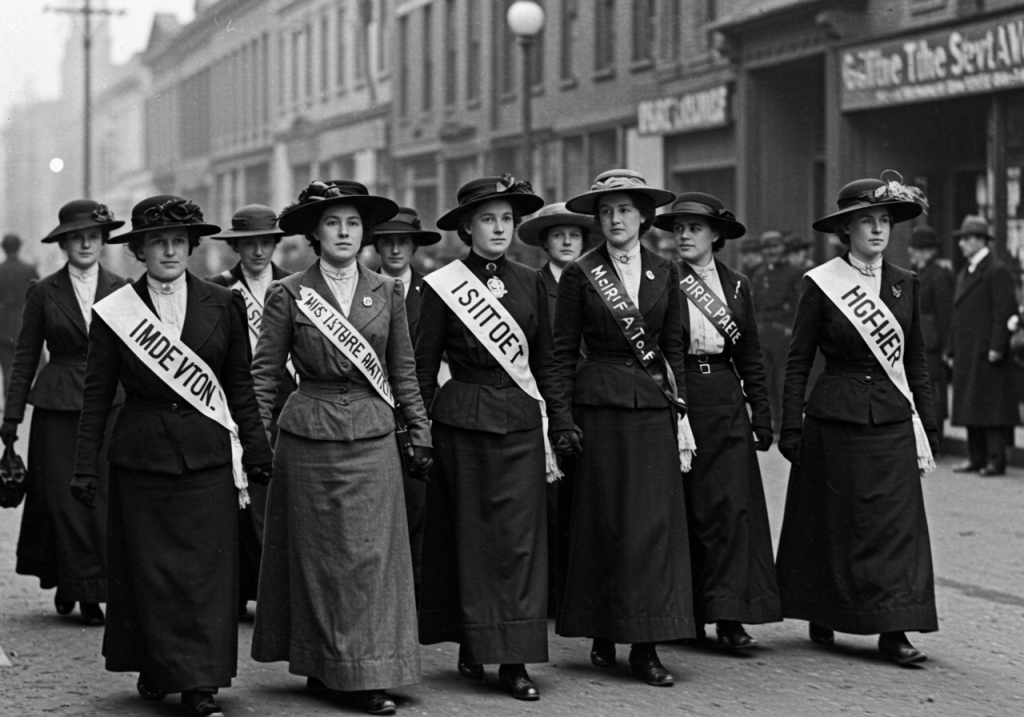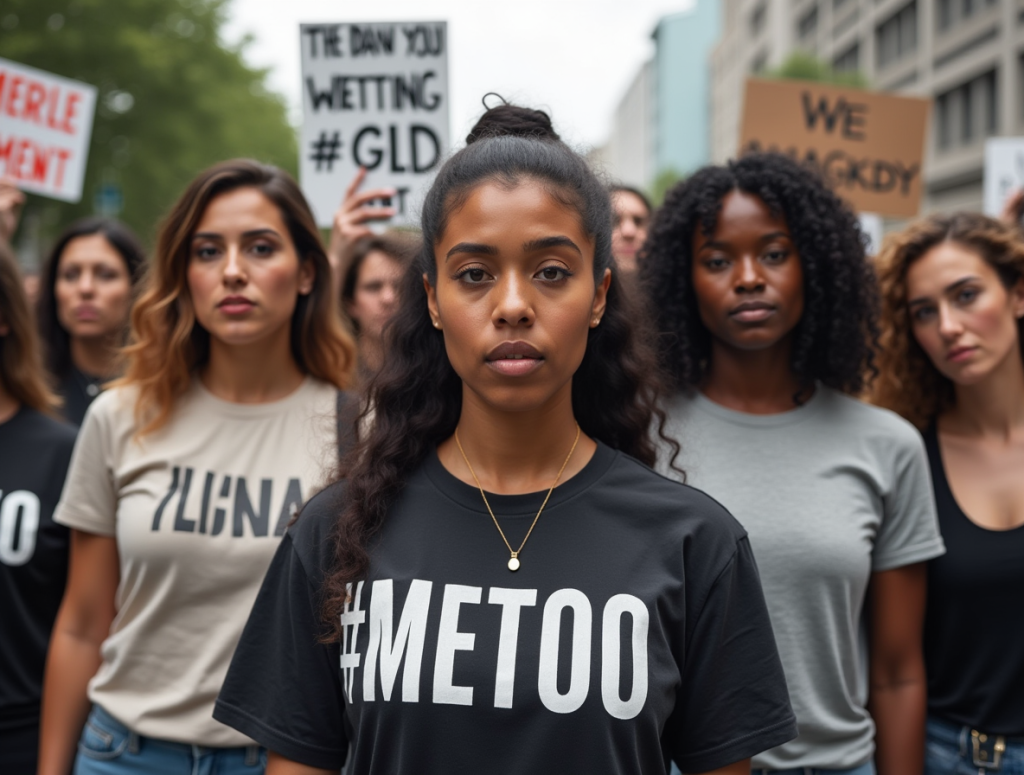What Are the Most Influential Women’s Movements in History?

To understand the significance of women’s movements, let’s take a step back and look at the suffragette movement in the early 20th century. This was a pivotal moment when women fought relentlessly for their right to vote. It wasn’t simply about gaining the ability to cast a ballot—it was about asserting their voice in a world that had long suppressed it. The suffragette movement was a wildfire of passion, rapidly spreading across nations and inspiring countless individuals to rise up for their rights.
Next, we turn to the feminist movements of the 1960s and 1970s, which expanded the scope of activism far beyond voting rights. This era tackled critical issues such as gender equality in the workplace, reproductive rights, and the dismantling of traditional gender roles. Imagine empowered women smashing through glass ceilings, demanding not only a place at the table but an entire seat in the decision-making process! These movements became a revolutionary force, creating waves of social change that resounded for decades.
Looking to the present day, we can’t overlook the monumental impact of the #MeToo movement. This powerful campaign has been like a tidal wave, shaking the foundations of industries and bringing much-needed attention to issues of sexual harassment and assault. Women, alongside their allies, have come together to share their experiences, demonstrating the unyielding power of solidarity. It’s as if a previously hidden chapter of history has been unveiled, inviting everyone to bear witness and learn.
Ultimately, when we ask, “What Are the Most Influential Women’s Movements in History?” these pivotal moments—each unique in its own right—serve as enduring symbols of strength, resilience, and transformation in the ongoing fight for equality.
From Suffrage to Empowerment: A Deep Dive into the Most Influential Women’s Movements in History

Let’s start by reflecting on the suffragettes. These courageous women weren’t merely fighting for the right to vote—they were challenging societal norms and confronting the deeply ingrained traditions of their time. Imagine them marching through the streets, holding signs demanding change. Their determination and passion sparked a wave of progress that laid the groundwork for future movements, including the Women’s Liberation Movement of the 1960s and ’70s. This movement wasn’t just about securing rights; it was about reshaping the very definition of womanhood.
As the years passed, these movements expanded and grew, incorporating a diverse range of voices and experiences. Consider the transformative impact of the #MeToo movement. This powerful campaign propelled discussions about consent, respect, and safety into the global spotlight, much like a pebble causing ripples in a calm pond. Women from all walks of life began sharing their stories, creating a collective consciousness that became impossible to ignore.
So, when asking yourself, “What Are the Most Influential Women’s Movements in History?” it’s clear that these movements, with their unique focus and energy, have left an indelible mark on society, pushing boundaries and creating a more inclusive and equal world for future generations.
Trailblazers and Change-Makers: How Women’s Movements Shaped Our World
Take a moment to reflect on some iconic figures like Susan B. Anthony or Malala Yousafzai. These remarkable women didn’t just break barriers—they risked everything to create a path for future generations. It’s as if, during dark and uncertain times, they took up a metaphorical torch, lighting the way for others to follow. Their stories are a testament to grit, perseverance, and an unyielding pursuit of justice—qualities that resonate deeply with us all.

Women’s movements have historically been a driving force behind social progress, benefiting not just women, but entire societies. These movements challenge long-standing norms and ignite discussions that often lead to crucial policy changes, social justice reforms, and a wider understanding of human rights. When women rise, communities thrive. It’s fascinating how the collective voice of women can disrupt even the most deeply rooted systems.
So when asking, “What Are the Most Influential Women’s Movements in History?” we see that these movements have changed the world, leaving a lasting impact that continues to shape the present and future.

The Power of Protest: Exploring the Milestones of Women’s Movements Through Time
Let’s take a moment to reflect on the suffragette movement of the early 20th century. Iconic figures like Emmeline Pankhurst didn’t merely ask for their rights—they demanded them loudly and proudly, shaking the very foundations of society. Their persistence was a rhythmic drumbeat that echoed the call for equality. It’s truly remarkable to think about how these fearless women risked everything, marching and rallying for the fundamental right to vote. Their bravery sparked a revolution, and what once seemed like an unattainable dream began to materialize as the world began to listen.
Fast forward to the ’60s and ’70s, and the feminist movement erupted with unstoppable force. Women mobilized for workplace equality, reproductive rights, and an end to gender-based violence. Protests surged with a fierce vibrancy, creating a powerful sense of unity that rattled the very ground beneath their feet. These movements were like wildfires, igniting change and reshaping societal ideals. Just as a wildfire clears the way for new life, these protests carved a path for future generations to flourish.
So when we ask, “What Are the Most Influential Women’s Movements in History?” it’s clear that these milestones have left an indelible mark on the world, creating ripples that continue to foster progress and social change.
Voices of Change: The Most Impactful Women’s Movements That Redefined History
Let’s take a moment to revisit the suffragette movement. Imagine women in their long skirts, marching through the streets, holding banners high, demanding their right to have a say in the political process. Their determination was a spark that ignited a powerful wave of activism, reverberating across generations. This was more than just a fight for the vote; it was a battle for equality, recognition, and the fundamental right to be heard. The suffragettes set the stage for future movements, inspiring countless others to demand their place in society.
Fast forward to the late 20th century, and we see the emergence of movements that expanded the conversation beyond gender inequality, addressing intersecting issues such as race and class. The Women’s Liberation Movement challenged long-standing societal norms, pushing the boundaries of what was considered acceptable. It was as though a fresh breeze swept through a stuffy room, opening the door for a new dialogue. Women started to reclaim their stories, emphasizing the importance of body autonomy, reproductive rights, and the undeniable power of their voices.





